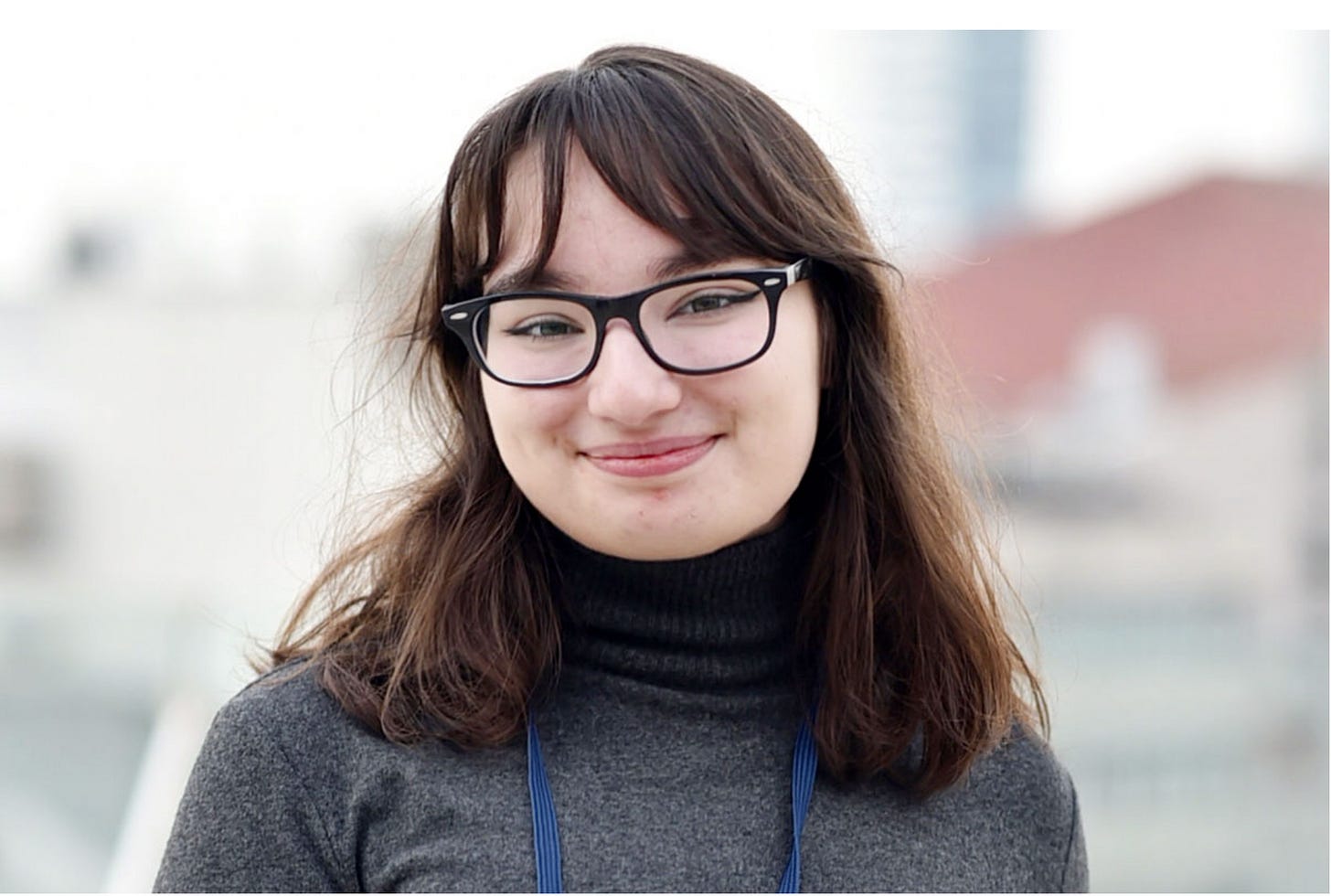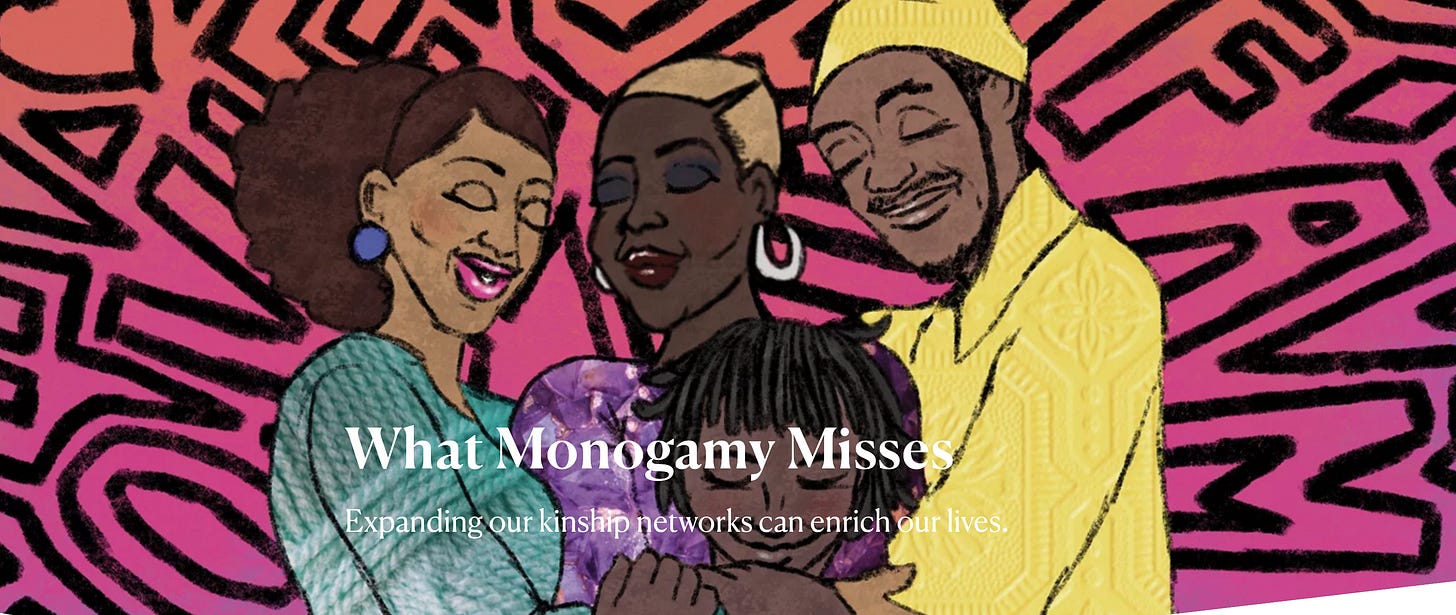Global Roundup: Cuba Feminist Activism, Afghanistan Queer Mental Health Support, Türkiye Gender Equality Activist, Indigenous TikTok Creators, Black Queer Writer on Polyamory
Curated by FG Contributor Samiha Hossain
We feel that the greater visibility and public denouncement of femicides is the result of the sustained work by different voices since 2019. -YSTC activists
Activists note that currently there exists “greater awareness of the problem” and emphasize the role of the internet (with mobile online networks being introduced in Cuba in 2018) and structures like the observatory to monitor gender-based violence, which has tallied 129 women killed due to their gender alone since its founding in 2019.
However, In Cuba, there are no official statistics kept on femicides, just sporadic figures. The National Gender Equality Survey in 2016, found that 39.6 percent of the women interviewed said they had been the victims of machista violence. The 2019 national report on fulfilling Agenda 2030 reported 0.99 femicides per 100,000 women 15 years old or more.
Last weekend, the secretary of the official Federation of Cuban Women (FMC), Teresa Amarelle, acknowledged that “challenges” persist in achieving gender equality, and she called for “comprehensive” attention to machista violence.
YSTC and Alas Tensas have been pushing for a “Declaration of a State of Emergency in Cuba over Gender Violence,” an initiative backed by 15 civil society organizations. The document denounces the lack of protocols and effective preventive mechanisms in Cuba, the failure to enforce restraining orders, the lack of women’s shelters and problems within the protection networks. It also demands a comprehensive law against machista violence and condemns the Cuban government for not expressly designating femicide as a crime in the new Penal Code. Meanwhile, Alas Tensas has sent “a strong demand to the official Cuban institutions to act against the increase in femicides” and the disappearance of women and girls, which often go hand in hand.
Sarah Hegazi, queer Egyptian activist, who Nour Sarah was named after. Credit: Humena for Human Rights and Civic Engagement/Wikimedia; Elham Numan/Xtra
CW: suicide
Soudeh Rad, a non-binary queer Iranian based in France, launched the Nour Sarah (Light of Sarah) initiative last summer to help tackle the mental health struggles faced by many LGBTQ+ people in the North African and West Asian (NAWA) region. The name is inspired by Egyptian LGBTQ+ activist and lesbian Sarah Hegazi who dared to wave a rainbow Pride flag at a Mashrou’ Leila concert in Cairo in 2017. The incident resulted in Hegazi’s arrest, torture and eventual flight to Canada to escape persecution. She experienced mental health symptoms from the trauma and died by suicide in 2020.
A collaboration between the Paris-based queer feminist non-profit Spectrum and LebMASH, a Lebanese non-profit focused on sexual health, the Nour Sarah initiative aims to help LGBTQ+ people in the NAWA region gain a better understanding of mental health issues and receive support in managing symptoms. Rad notes that in places like Iran and Afghanistan, it can be difficult to access mental health services that are queer-friendly, or that understand the specific mental health needs of queer and trans people. Nour Sarah aims to fill this niche somewhat by providing online services specifically geared to these communities.
The group’s main activity is connecting people in the region with a limited run of no-cost emotional support sessions. Rad says that they are also working on creating educational or informative blogs and podcasts in a number of languages. The current counsellors are not queer themselves, so the team at Nour Sarah facilitates educational sessions for the counsellors as well.
The first phase of the initiative, which began last fall, has targeted LGBTQ+ people either in Afghanistan, or who had recently left the country. Eventually, Nour Sarah hopes to expand into Iran and elsewhere in the NAWA region, and offer services in Arabic and Farsi. But Rad says that difficulties including a lack of funding, the political tumult in Afghanistan and translation issues have limited the capacities of the project. Attempting to create queer mental health content in Pashto, for example, has presented unforeseen difficulties.
The words to refer to LGBTQ+ people don’t even exist, and whatever is used in everyday language is very much LGBT-phobic. -Soudeh Rad
As of February, Nour Sarah has received over 60 requests for sessions, and has held about 20. Rad proudly recalls that the response of their clients has been heartening, and has reaffirmed the need for services like this in the region.
One person had all four of their sessions, then left a comment saying that we really helped them, that everything is now clear to them and they can return to their life; that whatever happens, they will survive and be victorious. That was really heartwarming. -Soudeh Rad
Dilanaz Güler. Photo courtesy of Dilanaz Güler via UN Women
Dilanaz Güler is a 19-year-old gender equality activist from Türkiye. An advocate against femicide and online gender-based violence, she also works to promote digital literacy and critical media consumption and is the founder of the youth and adolescent-led collective Youth for Digital Literacy.
Güler believes in “deconstruct[ing] what we mean by online gender-based violence,” as it is not always overtly aggressive or threatening. She mentions how the easily recognizable forms make up the minority of cases and though their less obvious counterparts can be equally harmful, they tend not to be covered by existing legal frameworks. An example is deepfake pornography, a growing trend for which there is currently no legal recourse.
A lot of the struggles that we have in the online sphere would actually be solved with pretty simple steps. -Dilanaz Güler
Fact checking is a crucial starting point according to Güler. Her work on digital literacy and critical consumption is motivated by the idea that, if you can effectively sort out what is true and what is not, it is much harder to get caught up by reactionary rhetoric. Güler also advocates for what she calls “radical love politics,” which includes building networks around a shared positive vision.
The reason why I do the work I do is that I have a very deep, fundamental belief that technology can change the world to be a better place…Technology establishes a bridge between a lot of organizations, a lot of people, a lot of cultures. -Dilanaz Güler
Güler’s advice to those starting their activism is to find networks that can support them and not make them feel like they are “just shouting into a concrete wall.” The internet can play a vital role in creating these networks.
Indigenous Tiktok content creators Kairyn Potts and Scott Wabano attended a gathering at the company's Toronto headquarters last week. (Sara Kae/CBC)
Scott Wabano, a Montreal-based, two-spirit fashion designer with over 50,000 followers on the app, began their journey on the popular video-sharing platform during the pandemic. They wanted to make others laugh but also understood the importance for Indigenous people to see faces, especially two-spirit individuals, like themselves. Wabano believes the sharing of one's gifts gives others the confidence to make their dreams a reality. Wabano said as more individuals use the platform to be the representation Indigenous youth can relate to, the youth will feel heard and celebrate who they are.
I have always been a big fan of the message that Indigenous representation is a form of harm reduction. -Scott Wabano
AFN National Chief RoseAnne Archibald told the attendees she wanted to know how she can help ensure safety for Indigenous creators within the app. She wanted to discuss the possibility of keeping individuals who share hate speech and misinformation about Indigenous people's history and experiences in Canada off the app. She said she hopes TikTok can find a way to create a better community for all on the app.
Santee Siouxx is a content creator and model with over 82,000 followers. Siouxx wears her regalia and focuses on breaking down negative stereotypes in her videos, but refrains from using her real name as a way to protect her privacy online for herself and her children.
I love social media for the fact that racism can't win. They try to bring you down. My most viral videos are filled with racist comments. Why is that? It's because the racist people are the ones [boosting] the content. I just laugh at it ... This is such a crazy world we live in. -Santee Siouxx
Those in attendance said they would like to see more sharing circles as a way to empower them to share their messages and stories even louder.
I hope that it becomes so saturated with Indigenous people that it's no longer surprising, or shocking, or inspiring to see a young person who’s Indigenous being successful... I want it to get so common that we get used to it. -Kairyn Potts
Jenn M. Jackson is a queer androgynous Black woman, abolitionist, lover of all Black people, and assistant professor. Jackson writes about their experience with expanding their “kinship network” on YES! Magazine.
From an early age, Jackson knew that monogamy and the nuclear family were not for them. In graduate school, they learned that the “modern” family started off as a way to support the demands of industrialization and to pass down property to children and grandchildren.
In the United States, this form of nepotism privileged white, middle- and upper-class landowners who continued to acquire land through nefarious means, like stealing from Indigenous people, exploiting immigrant populations, like Japanese and Mexican Americans, and enslaving Black Americans, before using state and federal constitutional amendments to create loopholes transforming slavery into “involuntary servitude,” language that still exists in some state constitutions today. -Jenn M. Jackson
However, Jackson notes how the nuclear family has been destabilized recently. A 2021 survey from the U.S. Census Bureau reported that just 17.8% of households comprised married parents with children under the age of 18. Many children are being raised by grandparents, extended family members, and other community kin. COVID-19 has also made people start to question and be more critical of nuclear families and monogamous coupling.
In this moment, we are called to reimagine what the family might be and embrace the possibilities before us when we release ourselves from the culture of monogamy enforced by patriarchy and capitalism. -Jenn M. Jackson
Jackson relies on Black queer feminist models of community and kinship to determine how they will raise their children and build community around them. They have created an environment where chosen family, rather than blood relatives, play a primary role in rearing and guiding their children.
Samiha Hossain (she/her) is a student at the University of Ottawa. She has experience working with survivors of sexual violence in her community, as well as conducting research on gender-based violence. A lot of her time is spent learning about and critically engaging with intersectional feminism, transformative justice and disability justice.
Samiha firmly believes in the power of connecting with people and listening to their stories to create solidarity and heal as a community. She refuses to let anyone thwart her imagination when it comes to envisioning a radically different future full of care webs, nurturance and collective liberation.






